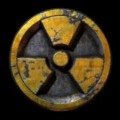Hi all,
i was just wondering if a (snubbing)capacitor for DC motors is useful or simply a must have. I have read, that snubbing capacitors reduce the electrical noise, which is definitely usefull, isnt it? Do you run your motors with/without capacitors?
How does it effect other electrical components such as driver-, Controler-board, psu, feedback pots? Any experience?
greetings
Capacitor for DC motor?
3 posts
• Page 1 of 1
- Settingz85
- Posts: 13
- Images: 6
- Joined: Sat 22. Dec 2012, 01:31
- Has thanked: 1 time
- Been thanked: 1 time
Re: Capacitor for DC motor?
Only from one person as a start and other may have ideas.
It would depend on the control board and h-bridge as to a "noise" issue.
I have only used JRKs with wiper motors and big worm gear motors.
Never needed a capacitor on mine, but then again , I have never noticed a noise issue.
For USB cables, a properly shielded cable certainly helps and luckily, I have been able to use $4 cables from the local computer shop.
There are better quality shielded cable around as well that yokoyoko uses and he has had success in reducing errors more than noise.
It would depend on the control board and h-bridge as to a "noise" issue.
I have only used JRKs with wiper motors and big worm gear motors.
Never needed a capacitor on mine, but then again , I have never noticed a noise issue.
For USB cables, a properly shielded cable certainly helps and luckily, I have been able to use $4 cables from the local computer shop.
There are better quality shielded cable around as well that yokoyoko uses and he has had success in reducing errors more than noise.
-

motiondave - Posts: 997
- Images: 1
- Joined: Tue 20. Mar 2012, 16:36
- Location: Sydney Australia
- Has thanked: 11 times
- Been thanked: 13 times
Re: Capacitor for DC motor?
During the last weekend, i spend some time on increasing my knowledge about capacitors(focused on snubbing capacitors).
Since we´re handling with electronic motors (mostly DC), we´re handling a system which might generate/inducates high voltage peaks (motor break..etc). This might lead to noise and a tripping power supply (security circuit might shut psu down). A snubbing capacitor can solve this issue. If u dont have any issues with noise or psu, you´re good. If you have any problems, snubbing capacitors might help(shielded cables help as well).
I´m not an expert when it comes to electronic. Maybe someone else can confirm what i found out or correct me. Any help would be great.
btw. Some manufactures recommend to use a snubbing capacitor for their motor drivers, such as Devantech (omg, i have one of these ).
).
The Manual tells me to use a capacitor with following details:
"10N; The capacitor should also be capable of handling a voltage of twice the drive voltage to the motor"
So what is meant with "10N"? Is it 10nF? 10nF = 0.01µF, right?
I drive my motors with 24V. So i need a capacitor which can handly at least 48V. The only Snubber Capacitors i find can handle a pulse up to 1000VDC, at 0.01µF. Thats a huge difference between 48V and 1000V, isnt it?
Since we´re handling with electronic motors (mostly DC), we´re handling a system which might generate/inducates high voltage peaks (motor break..etc). This might lead to noise and a tripping power supply (security circuit might shut psu down). A snubbing capacitor can solve this issue. If u dont have any issues with noise or psu, you´re good. If you have any problems, snubbing capacitors might help(shielded cables help as well).
I´m not an expert when it comes to electronic. Maybe someone else can confirm what i found out or correct me. Any help would be great.
btw. Some manufactures recommend to use a snubbing capacitor for their motor drivers, such as Devantech (omg, i have one of these
The Manual tells me to use a capacitor with following details:
"10N; The capacitor should also be capable of handling a voltage of twice the drive voltage to the motor"
So what is meant with "10N"? Is it 10nF? 10nF = 0.01µF, right?
I drive my motors with 24V. So i need a capacitor which can handly at least 48V. The only Snubber Capacitors i find can handle a pulse up to 1000VDC, at 0.01µF. Thats a huge difference between 48V and 1000V, isnt it?
- Settingz85
- Posts: 13
- Images: 6
- Joined: Sat 22. Dec 2012, 01:31
- Has thanked: 1 time
- Been thanked: 1 time
3 posts
• Page 1 of 1
Return to Motion simulator building Q&A
Who is online
Users browsing this forum: No registered users and 4 guests



